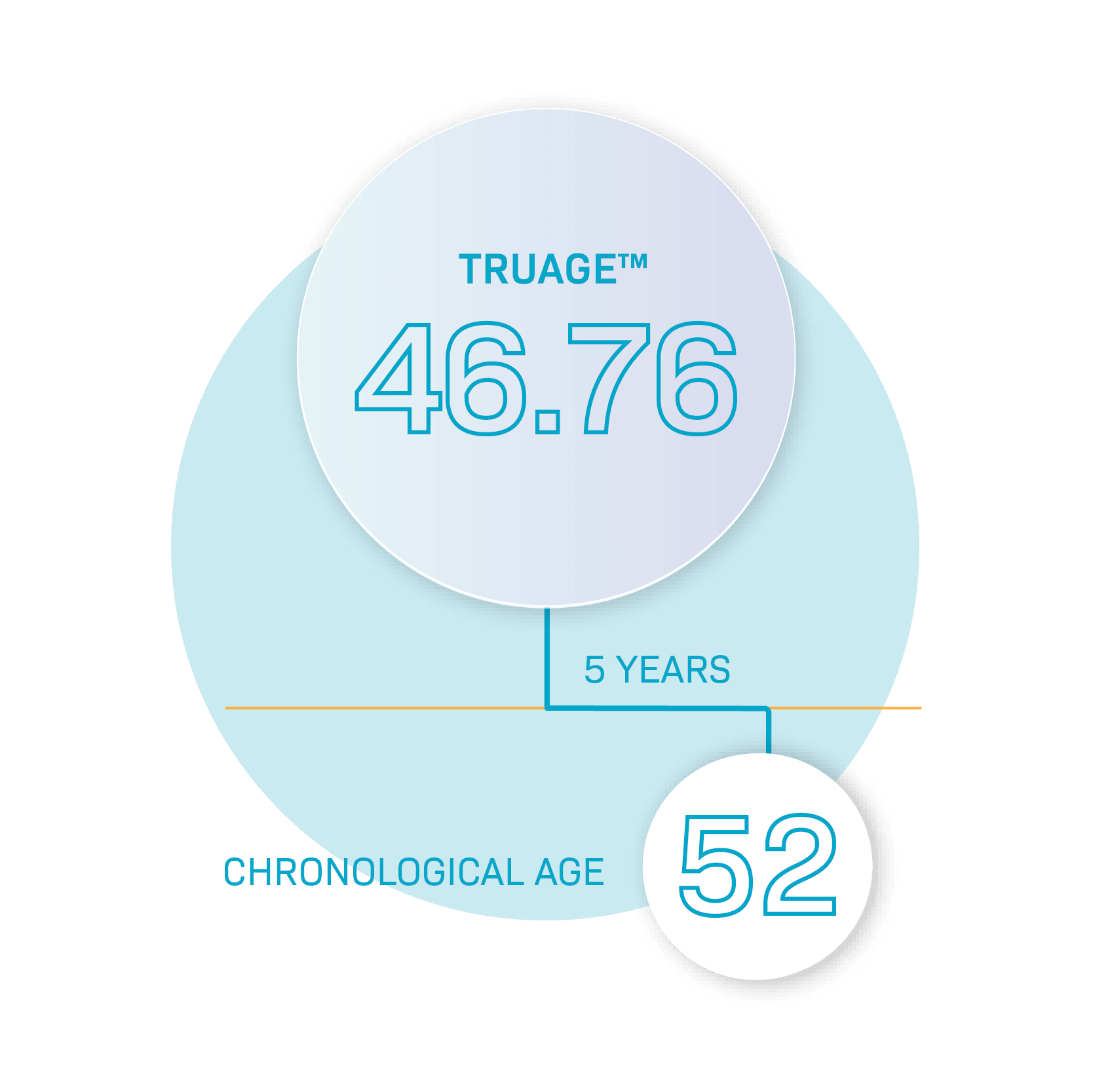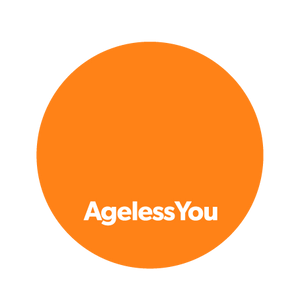AGE REVERSAL - Discover your biological age

Understanding Epigenetic Age Tests
At Ageless You, we're passionate about helping you understand and optimize your aging process. Our founder, Lou McDowell embodies this mission firsthand. Recently, she took our TruAge COMPLETE test and discovered some exciting results. With a chronological age of 56, her biological age came in at an impressive 45.8—just over 10 years younger than her birthday cake candles suggest. This remarkable finding not only highlights the effectiveness of our products and lifestyle recommendations but also underscores the power of understanding your biological age. Join us as we delve deeper into what these numbers mean and how you can achieve similar results.
Ageing could be silently impacting your health. Discover your biological age and take actions to reduce your pace of ageing
What is an Epigenetic Test?
Think of your DNA as a recipe book that tells your body how to grow and function. Over time, little sticky notes, called epigenetic markers, are added to these recipes. These markers don’t change the recipes themselves but do change how they are read and used. An epigenetic test looks at these markers to see how they are affecting your body. By studying these changes, the test can tell you how old your body really seems to be, how fast you are aging, and how healthy you are. This helps you understand how things like your diet, exercise, and stress affect your body.
The Basics of Aging
We all know what aging looks like: wrinkles, gray hair, and slower movements. But scientifically, aging happens because our cells and organs slowly stop working as well as they used to. This happens due to various reasons, such as damage to our DNA, changes in how our genes are read, and the buildup of old, non-functioning cells.

Biological Age vs. Chronological Age
Everyone has two ages: a chronological age and a biological age. Your chronological age is how many years you’ve been alive. Your biological age is how old your body seems based on how healthy it is. Two people who are the same chronological age can have very different biological ages. For example, someone who eats well, exercises, and doesn’t smoke might have a younger biological age than someone who doesn’t take care of themselves.
Why Knowing Your Biological Age is Important
Your biological age is more important than your chronological age because it tells you more about your overall health. A younger biological age usually means a lower risk for many diseases, like cancer, heart disease, and diabetes. It also means more energy, better physical abilities, and better mental health. Most importantly, your biological age can be changed. By making healthy lifestyle choices, you can lower your biological age, even if your chronological age keeps going up.
How Can We Measure Biological Age?

Scientists have developed many ways to measure biological age. Some of the most accurate methods involve looking at your DNA and the epigenetic markers on it. These are called epigenetic tests. They can tell you a lot about your health and how fast you are aging by examining patterns in these markers.
The Evolution of Epigenetic Clocks
In 2011, researchers led by Steven Horvath at UCLA developed the first epigenetic clock using saliva. This clock aimed to match the biological age as closely as possible to the chronological age. Since then, newer versions have been created, which include environmental factors like smoking. These newer clocks are better at estimating biological age and predicting health risks.
The DunedinPACE Epigenetic Clock
The latest and most accurate epigenetic clock is called the DunedinPACE clock. It was developed by researchers at Columbia University and Duke University in conjunction with Otago University - using data from a long-term health study called “The Dunedin Study.” This clock doesn’t just tell you your biological age; it tells you the rate at which you are ageing. For example, if your rate is 0.90, you are aging 10% slower than average. If it is 1.05, you are aging 5% faster than average.
How Does DunedinPACE Work?
The DunedinPACE clock looks at over 400,000 different markers on your DNA and uses 173 of them to measure your rate of aging. It checks various health and aging markers, including cardiovascular, metabolic, immune, dental, and cognitive biomarkers. The results can tell you if you are aging faster or slower than average and what that means for your health.
Discover your Biological Age with TruAge Complete

TruAge COMPLETE, at-home epigenetic test tells you how old you really are from a biological standpoint, on a cellular level. Of our two testing options, TruAge COMPLETE offers the most comprehensive and in-depth look at 75+ biomarkers of ageing, including Pace of ageing. It also breaks down your age-related risk of developing various diseases and death, using the novel OMICm Age algorithm developed in partnership with scientists from Brigham and Women's Hospital of Harvard Medical School.
TruAge COMPLETE is the go-to kit for anti-aging enthusiasts who want a comprehensive look at their baseline aging metrics.
Why at is TruAge Pace and Pace of Ageing?
Knowing your pace of aging is more actionable than knowing your biological age. Your biological age reflects years of accumulated damage, which is hard to change quickly. But your pace of aging can change more rapidly in response to lifestyle changes. This makes it easier to see the effects of diet, exercise, stress management, and other health interventions.
How to Use TruAge Pace

TruAge Pace is a comprehensive test that includes the DunedinPACE clock to measure your rate of ageing, along with tests for your biological age and telomere length. Telomeres are protective caps on your DNA that shorten as you age. TruAge Pace provides detailed insights into your ageing process and how lifestyle changes can impact it.
Conclusion
Understanding your biological age and pace of ageing is crucial for managing your health and aging process. Epigenetic tests like the DunedinPACE clock provide valuable insights into how your lifestyle choices affect your aging. By making positive changes, you can slow down your aging process and improve your overall health.
For more information and purchase a Biological Age Test or Pace of Ageing Test- click here



